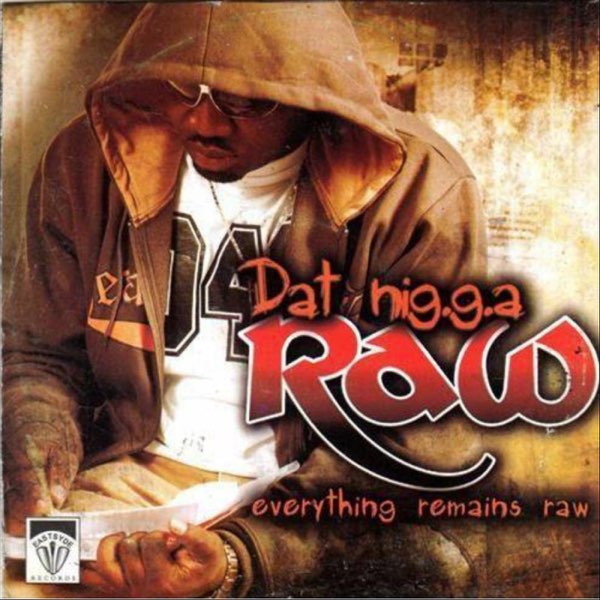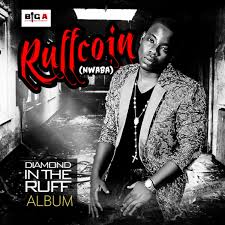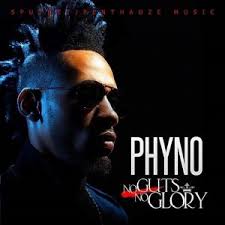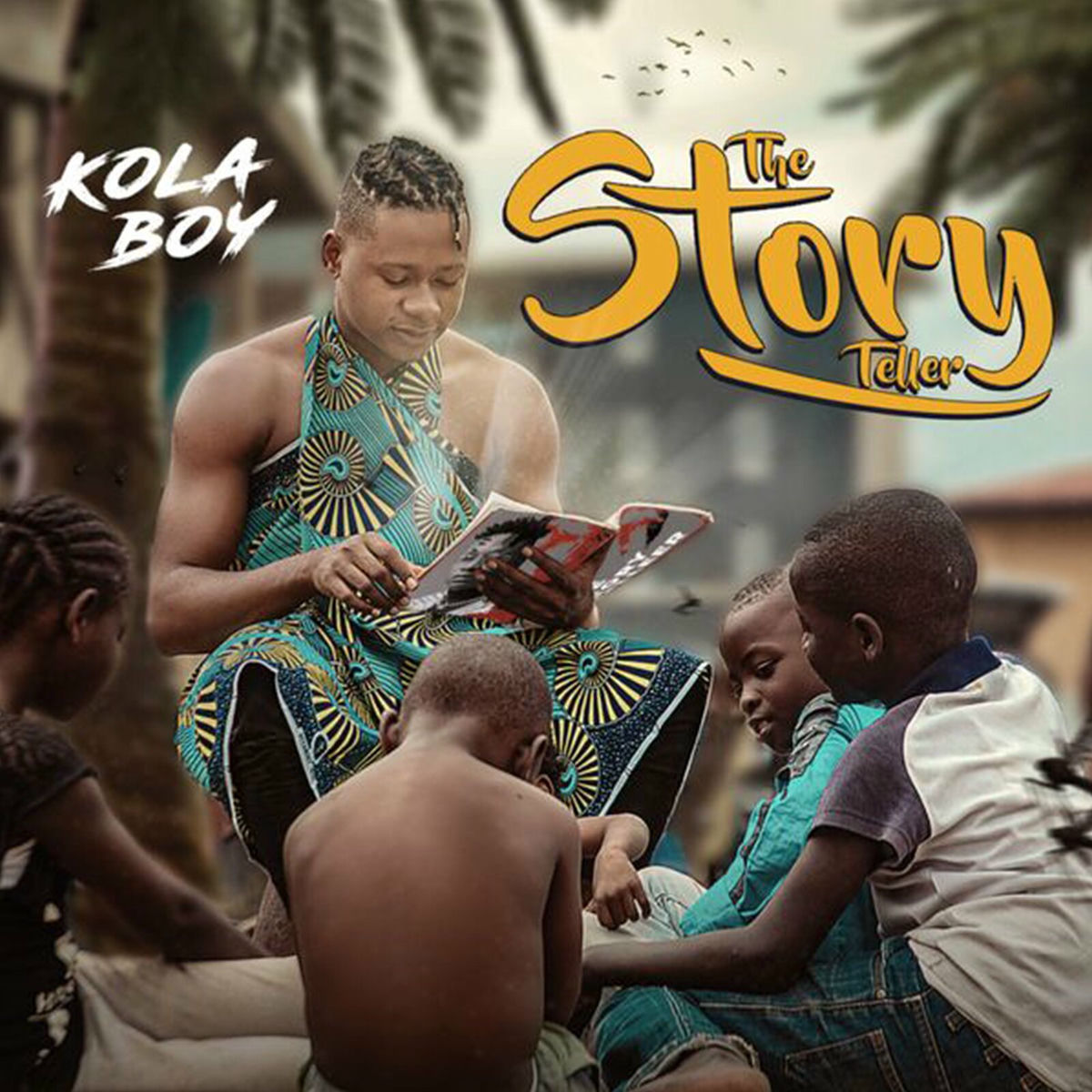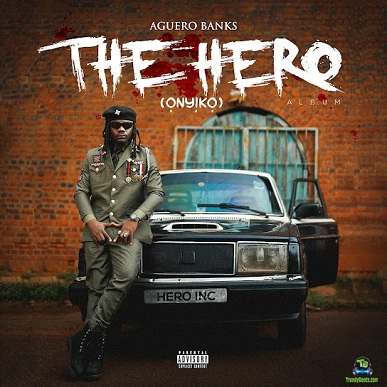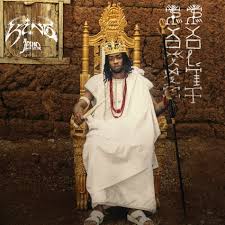Igbo Rap: The Legacy, the Bridge, and the Future
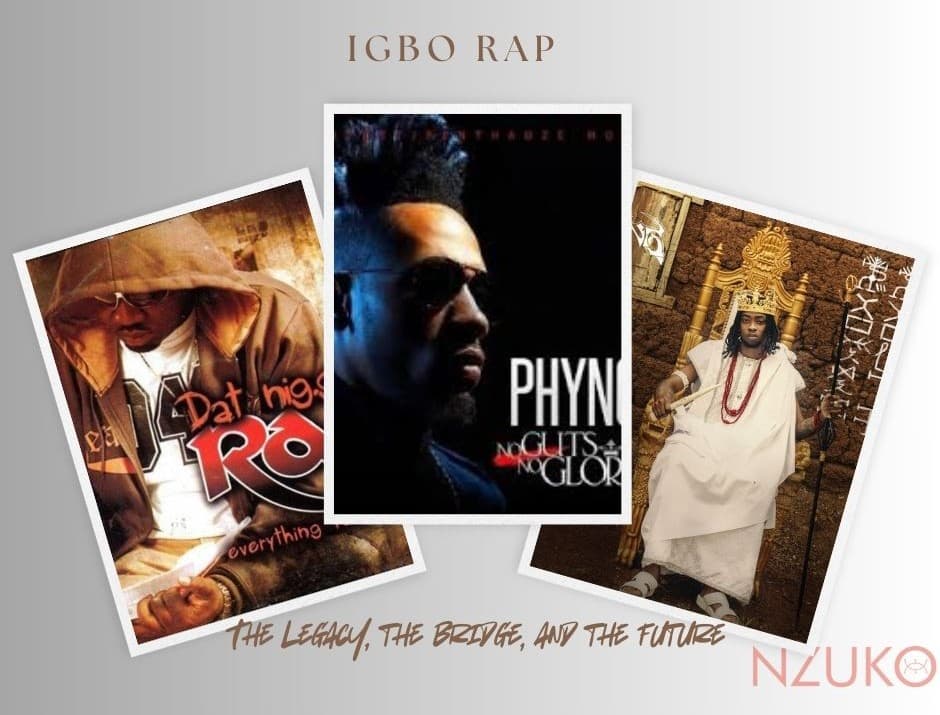
The history and evolution of Nigerian music have been extensively documented through research papers, articles, and documentaries, often focusing on traditional genres from various ethnic groups. However, one subgenre that remains underexplored is Igbo Rap—a unique offshoot of Nigerian hip-hop that gained mainstream attention in the 2000s. While rooted in Western hip-hop influences, Igbo Rap distinguishes itself by seamlessly blending indigenous sounds like highlife and ogene, creating a distinct musical identity.
From the earliest albums in the genre, Igbo rap pioneers made it clear that there were no creative boundaries. Their music ranged from lively party jams to politically charged tracks, cultural commentaries, and deeply introspective pieces. However, due to challenges with documentation, retracing the history of Igbo rap requires more than just research—it demands lived experience.
To write this article, I had to first be Igbo. I had to have lived in the region from the 2000s—the golden era of Igbo rap—until now. I had to revisit old albums, reliving the days when their beats echoed through the streets and barbershops. These were the years of CDs—P-Square’s greatest hits, Flavour’s collections—and rampant music piracy, which made it difficult to track the true reach and success of songs. What I recall as the biggest hits may have been regional favorites, varying from one part of the southeast to another.
Today, Igbo rap continues to thrive, with countless artists pushing the genre forward despite industry challenges. Many contributors to this movement may not be recognized in this piece, but this article highlights seven prominent Igbo rappers across different eras, offering a closer look at their work by reviewing one of their albums. Additionally, this exploration provides an opportunity to further investigate the dependence of Igbo language arts on infusions of Naija Pidgin and English. With each album reviewed, I set out to find one track delivered entirely in Igbo—without a single word in any other language.
No discussion of Igbo rap is complete without mentioning Mr. Raw. Widely regarded as one of the genre’s pioneers, Okechukwu Edwards Ukeje, a native of Abia State born and raised in Enugu, rose to prominence in the early 2000s. He released his debut studio album, Right or Wrung, on October 7, 2005, followed by Everything Remains Raw in 2007. Each album produced multiple hit songs, solidifying his status in the industry. His third studio album, End of Discussion (2010), further cemented his influence, earning him the NMVA Award for Best Afro Hip-Hop Video for the song O! Chukwu.
In 2010, Raw announced a change of stage name from Dat N.I.G.G.A. Raw (an acronym for "Dat Nigerian Guy Anakpo Raw") to Mr. Raw. He cited international censorship and the negative connotations of the word “N.I.G.G.A” as the primary reasons for the change.
From the very first track, My Name, Mr. Raw makes a bold declaration of his identity—his Igbo heritage, his rap credentials, and his signature raw style. In this autobiographical opener, he reflects on his childhood, the schools he attended, and his journey to becoming Dat N.I.G.G.A. Raw. If this introduction doesn’t convince listeners that Everything Remains Raw is more than just an album title—it’s a statement—then Ko Gbadun does. On this track, he takes on Nigeria’s deep-seated political corruption with unfiltered lyricism and a sharp delivery.
While Mr. Raw is undoubtedly a skilled lyricist, he also understands the dynamics of mainstream appeal. To balance his hard-hitting bars, he collaborated with some of the biggest names in the industry, including Duncan Mighty, Flavour, Tj, Mc Loph, and Phyno. His ability to switch between languages without losing the essence of his identity is one of his greatest strengths. Take, for instance, Strong & Mighty, a fan favorite. When he raps, “I challenge you, take one post,” the phrase—though in English—instantly evokes memories of street football, where shirtless Igbo boys battle it out on dusty roads. He builds on this imagery, weaving football-related metaphors throughout the verse in a display of his lyrical dexterity.
For those looking to ease into the album with familiar-sounding tracks, his collaborations with Tj—Shake Una Bodi and In Love with an Angel—are the best starting points. These two songs rank among Mr. Raw’s most popular. Shake Una Bodi, an irresistible party anthem, pairs Tj’s smooth vocals with Mr. Raw and Slowdog's energetic verses, making it impossible not to move to the beat. In Love with an Angel takes a different turn, opening with Tj’s soothing voice before Mr. Raw delivers heartfelt praises and declarations of affection, an ideal love song.
Mr. Raw’s storytelling ability shines on Baby Mo, featuring Black Solo, where he paints a vivid scene of an encounter with a woman at a restaurant, unfolding through engaging dialogue. The album serves as a portrait of the artist, answering the unspoken question: What should you expect when you hear the name “N.I.G.G.A. Raw Nwanne?” The answer is simple—everything remains raw.
Ruffcoin
A native of Abia State, Emelogu Muruako Fortune was born and raised there. While still in secondary school in 1998, he had already discovered his love for music and entertained his friends with his songs. His first music album, Nwa Aba, recorded in 2004, was a resounding success and established him as "Ruffcoin Nwaba," a household name in the Igbo entertainment sphere. His second album, Nwa Aba Reloaded, kept him in the conversation, while his third, Diamond in the Ruff, produced several hit songs.
Ruffcoin Nwaba draws inspiration from both traditional and contemporary Nigerian artists in the hip-hop scene. This influences his style, sound, and, interestingly, the language of his music. Ruffcoin feels more comfortable rapping in English. In Diamond in the Ruff, it seems more likely that we would get a song done purely in English than one in Igbo. In fact, the album starts off uncertain and only assumes the tag of an Igbo rap project by track three, when Ruffcoin and Phyno trade verses on the hit song 30-40.
Nwaba’s versatility allows him to drift not just across languages but also across delivery styles. He seamlessly switches from rap verses to melodious singing and appears more comfortable singing in Igbo than rapping. This is demonstrated in tracks like Nwaba Remix (Umuaba) and Ego. Additionally, he features Flavour and Phyno on different tracks to extend the Igbo appeal of the album.
While researching this piece, I came across a few talented rappers of Igbo descent who are not featured in this article simply because they write and perform their songs in other languages. This article is more an exploration of Igbo rap than of Igbo rappers. One notable mention in this category, as featured on Ruffcoin's album, is Michael Ugochukwu Stephens, popularly known as Ruggedman, another superstar from Ohafia in Abia State with an extensive discography and awards to his name. Ruggedman opens Sweet Music (Remix), the last track on Diamond in the Ruff, with an aesthetic verse indicative of his quality and acclaim in the Nigerian hip-hop industry. M.I. Abaga, 2Shotz, Ella, and Ruffcoin all deliver, and the album closes with a showcase of the other side of Ruffcoin’s sound—the side that appeals to audiences beyond ndi Igbo.
Some of his biggest songs include Nwa Aba, which, like 50 Cent’s Many Men, is Ruffcoin’s boastful recount of his past experiences in the bustling city of Aba, and Eriwa, an infusion of highlife, ogene, and hip-hop. Still very much in the game, Ruffcoin dropped his album Tradomedical in 2023, featuring newer voices like Kolaboy and Ugoccie, followed by his EP Tradomedical II in 2024—an exploration of new terrains while paying homage to his roots.
Phyno was a recurring name in the music scene even before his grand entrance with Ghost Mode, the hit collaboration with Olamide that propelled him to rapid success. Phyno, real name Chibuzo Nelson Azubuike, hails from Anambra State but was born and raised in Enugu—both places symbolic to his journey, as reflected in his art. During his time in secondary school, Phyno learned to play the drums and keyboard, and by his second year at the Institute of Management and Technology in Enugu, he was already profiting from his music.
His debut studio album, No Guts No Glory, was released in 2014, followed by a collaborative album with Olamide, 2 Kings, in 2015. Over the last decade, he has kept his torch flaming, releasing The Playmaker (2016), Deal with It (2019), Something to Live For (2021), and Full-Time Job (2024). With numerous hit songs, solid projects, and an overflowing awards cabinet, Phyno is considered—almost inarguably—the king of the Igbo Rap sub-genre. He serves as a bridge, connecting the era of Mr. Raw to the new wave of Igbo Rap voices.
Phyno’s 19-track debut album is a demonstration of guts, a celebration of lived experiences told in street lingua, and a massive step toward deserved glory. Similar to Mr. Raw’s approach—whom he admitted to drawing inspiration from—Phyno begins with an introduction, not just to the rapper but to the man, Chibuzo: his childhood, dreams, education, and family. The playful tone of this track, especially for a debut, shows an artist in his zone, with no pressure to prove himself but confident enough to have fun while making music.
In Alobam, he pays homage to his colleagues in the industry and the people in his circle. With such a strong message delivered in a distinct lingua and style, it is no surprise that the song inspired the "Alobam" merchandise line, which gained popularity even beyond southeastern Nigeria. On O Set, he teamed up with one of Africa’s most successful music groups, P-Square, to create a song that enjoyed significant airplay in clubs, on the radio, and on TV.
In the album’s lead single, Ghost Mode, Phyno showcases his speed, fluidity, and lyrical prowess. The song generated immense buzz and anticipation for the album, winning Best Collaboration at both The Headies 2012 and the Nigeria Entertainment Awards 2013. With the album’s second single, Man of the Year, Phyno cemented his place in Nigeria’s rap scene, earning the Best Rap Single award at The Headies 2013. His collaborations with fellow industry heavyweights like Omawumi, Runtown, M.I, and Ice Prince contribute to the album’s vocal and lyrical depth. However, one of the most significant features on this album is Authe (Authentic) with Flavour—an early indicator of the strong collaborative relationship between Igbo artists that would continue to flourish over the next decade.
Phyno frequently experiments with the boundaries between highlife and hip-hop (rap). He gives a glimpse of this side of his music with Nme Nme but delves even deeper into it on his next album, The Playmaker, with tracks like Connect, E Sure For Me, Fada Fada, Pino Pino, and SFSG (So Far So Good). On other days, he prefers to drop one hard-hitting rap verse after another, as he does on Good Die Young, a tribute to those he lost along the way, including MC Loph (real name Nwaozo Obiajulu), one of the most promising talents in Igbo rap whose life was tragically cut short just as his career was taking off.
On Multiply, he brings together industry giants like Timaya, Flavour, Mr. Raw, and M.I on the same track—an appeal to higher forces to watch over him as he embarks on his musical journey.
In my search for mainstream hip-hop tracks delivered entirely in Igbo, Phyno is about as close as I have gotten. While he employs proverbs and other cultural elements in his lyrics, his voice—shaped by growing up in Abakpa Nike, Enugu—adds to the ongoing conversation about native language in the arts. His street lingua, which informally borrows English words, further blends into his artistry. While rap lovers from different cultures appreciate his music, for me—an Igbo person who grew up between Onitsha and Enugu—there are no lost messages in his rendition, no question about where he is from or the experiences that have shaped Chibuzo into the phenomenal Phyno.
Zoro Swagbag
From a teenage sensation to being touted as the next big thing in Igbo rap after Phyno, Zoro Swagbag is one of the most recognizable names in the popular music space. Owoh Chimaobi Chrismathner, a native of Awgu in Enugu State, was born and raised in Onitsha, Anambra State. Maintaining an impressive academic record over the years, Zoro attended St. Mary’s Primary School, Onitsha, and the College of the Immaculate Conception in Enugu for his secondary education. He then earned an OND from the Institute of Management and Technology (IMT), Enugu, and secured admission to Nnamdi Azikiwe University to further his studies. However, as his career began to take off, he relocated to Lagos to focus entirely on music.
Zoro started releasing songs in 2014, but his big break came two years later when he collaborated with Flavour on the hit single Ogene—an introduction for many to the talent and artistry of Zoro Akpa-Swag. With an uptempo ogene beat that electrifies any room when it comes on, an incredible verse aptly delivered by an emcee in his element paying homage to Igbo tradition, and Flavour’s unmistakable vocals carrying the melody, Zoro positioned himself as an artist to watch.
Still going strong, he followed up with Achikolo, featuring Phyno, with Pammy Udu Bunch as contributors. In his verse, Zoro reflects on his childhood, recounting the joys of growing up Igbo—an experience that resonates with countless others who find pieces of themselves in his lyrics. Even beyond his preferred ogene beats, Zoro’s flow sets him apart from the rappers who came before him, as he masterfully demonstrates on this track. Phyno adds a signature touch with a dynamic verse, shifting between tempos—fast and slow—while leaving his mark with his distinctive highlife influence.
Over the next few years, Zoro Swagbag solidified his place as one of the best in the scene, delivering numerous notable songs and features, including Ayo’m with Phyno, Mr. Eazi, Umu Obiligbo, and Chike; Stainless with Simi; Halleluyah; and Iheanacho. When Flavour sought collaborators for his ogene-styled track Ijele, it’s easy to imagine there was little debate about bringing Zoro on board. As expected, Zoro fits in seamlessly, delivering a short yet thoughtful verse skillfully in Igbo. Another standout project is Flavour’s Gbo Gan Gbom, featuring Phyno and Zoro—a celebration of the Igbo experience that, eight years later, still draws listeners back to sing along.
Zoro’s debut album, Sound Check, was released in 2023, more than a decade after he entered the music scene. Featuring collaborations with Chike, MohBad, Ajebo Hustlers, Mayorkun, and Superboy Cheque, the album sees him experimenting with a slower tempo than usual, leaning more toward mainstream rap than Igbo Rap.
Kolaboy
Born Chinonso Nwodo, Kolaboy hails from Enugu State but pays tribute to Okpoko in Onitsha, Anambra State—a place that played a vital role in shaping him into the artist we know and celebrate today. His debut album, The Story Teller, was released in 2020, followed by the EPs Kola from the East (2022) and Kolapiano (2023). Kolaboy identifies not just as a singer, songwriter, and rapper but also as a cultural activist who seeks to continuously promote Igbo culture.
This story begins with a heartfelt letter from a prodigal son to his mother. The first verse is delivered in Naija Pidgin, while the second is in Igbo—an overview of Kolaboy’s preferred mediums of expression in rap. This opening track, Hello Mumsy, paints a vivid picture of the artist’s childhood, his passion, and the motivations that lead him to chart his own path, away from the expectations set by his upbringing. The second track, Law of Karma, plays on words and rhymes as he deftly engages with social discourse.
The album cover features Kolaboy with a wrapper tied around his neck in the traditional style, surrounded by children—a depiction of the traditional storyteller. In Cup (Ikom), his lines paint striking images of the hardships he endured as a child, coupled with a heartfelt prayer to God to fill his cup. After each hard-hitting track, he follows up with a softer, more playful one, as he does with Tunu, where he professes love for the object of his attraction. This alternating pattern continues, with Wire as a reflective track on his beginnings, followed by Senator featuring Zoro Swagbag and Masterkraft—a boastful celebration of how far he has come.
In the final two tracks, Collect featuring Wonder J, and 6am, Kolaboy continues to appeal to higher powers while offering social commentary on the everyday realities of Nigerians. True to its promise, the album closes with a memorable verse—a heartbreaking story of Ebuka, a once-promising boy whose light is dimmed by societal limitations.
Some of Kolaboy's biggest songs are those that pay homage to his Igbo identity. These include Omalicha featuring Ejyk Nwamba, Ugomma featuring Jaydee Bombshell, and Ogoli featuring Barmy—a song that builds on the late Rev. Patty Obassey’s classic. One of the biggest hits of his career is the Kolapiano series, which infuses the traditional Oja flute into popular contemporary genres, further bridging the gap between Igbo heritage and modern sounds.
Aguero Banks
Aguero Banks, real name Chukwu Francis, is a rapper and songwriter born and raised in Enugu. After earning a BSc in Sociology from AE-FUNAI, he signed with FOMO Records in 2020 and began releasing music. His first EP, Pains and Sacrifice, came out in 2021, followed by Dreams and Nightmares (2022) and the albums God is Never Late (2023) and The Hero (Ọnyịkọ) (2024).
Aguero Banks is deeply influenced by Western hip-hop culture. This is evident in his visual representations and production choices. While his language of delivery blends Igbo, English, and Naija Pidgin, his storytelling and messaging contain a heavier Western influence compared to the other Igbo rappers featured in this article.
However, when The Hero (Ọnyịkọ) opens with Ọnyịkọ featuring Ejima042, the sound of the oja flute and a soulful Igbo chant floating into a slow, divination-like rhythm cushioned by highlife elements creates an immediate pull. For the Igbo listener, it feels like an embrace, a sense of ownership and belonging. This work is ours. Though we might have wished to hear him rap over this spiritual sound, when Banks switches the beat later in the track to his preferred hip-hop style, the conviction remains: beyond the language of delivery, this is an Igbo rap album.
As with much of his work, Aguero Banks continues to give back to the streets of Obiagu in O42, where he comes from. The aggressive tone of Woto Woto—a recurring theme in his music—makes one wonder, Why is he so angry? Almost as if in response, he answers in the next track, Congratulations, with the line, “’Cause I’ve been fighting for my life.” Perhaps his words, like all great art, are shaped by his immediate surroundings and formative experiences.
In Hero featuring Phyno, Ezege delivers what became inarguably the most talked-about Igbo rap verse of 2024. Aguero Banks opens with two short but solid verses reflecting on his career and contributions to his community before handing the baton to Phyno, who goes on a roll. His verse is about remembrance—honoring the heroes of our people, celebrating the pacesetters, and remembering the dreaded villains, their imminent downfall. And at its core, Phyno’s verse is also a boastful yet well-earned declaration of his greatness and longevity.
Other artists featured on the album include Wizard Chan, Reekado Banks, and Jeriq. The track Ghetto Gospel featuring King Perryy takes inspiration from the popular highlife song One One B by Chief Onyenze Nwa-Amobi. Banks closes the album by introducing ogene sounds in the final seconds of the last track, Real Life. While this feels somewhat out of place within the song, it reinforces his conscious effort to represent his identity amid all other influences.
Jeriq
Born in Nkpor, Anambra State, Jeremiah Chukwuebuka Ani hails from Enugu State. He attended the College of Immaculate Conception, Enugu, before advancing to Enugu State University of Science and Technology (ESUT), where he studied Computer Science. Jeriq began his career in 2015 but rose to prominence in 2020 with his debut EP, Hood Boy Dream. He followed up with a joint EP, Ea$t N We$t, with Dremo in 2021. His debut album, Billion Dollar Dream (2022), earned him a nomination at The Headies 2023 for Best Rap Album, along with a Best Rap Single nomination for My Bro. In 2024, he released a joint EP, Evil Twin, with PsychoYP and followed with his second studio album, King.
On this 15-track album, Jeriq explores themes of power, struggle, and ambition. He opens by declaring himself King, taking listeners through his unsavory yet determined journey to the throne. The production and flow follow classic hip-hop patterns, setting the stage for an introspective yet assertive project. In Jehovah, Bella Shmurda delivers a soulful hook while Jeriq continues his story of ascent from ghetto boy to superstar. Ije Nwoke samples the legendary Morocco Maduka and extends the narrative to a broader reflection on the societal expectations that weigh heavily on men throughout their lives.
The album cover is rich in symbolism—Jeriq sits on a throne, a crown on his head, a staff and elephant tusk in his hands. However, one of the most striking elements is the Nsibidi inscriptions on the mud wall behind him.
The track Fresh and Dope featuring Blaqbonez blends the lead guitar familiar to Igbo highlife music with a hip-hop base. While the tempo forces Jeriq to pick up his pace, he does so effortlessly. Tracks like Mulla on My Medulla, Rands on Rands featuring Maglera Doe Boy, and Bonjour revolve around his love for money and luxury.
With Ogene, Jeriq calls on lovers of traditional Igbo sounds to let loose, kick off their shoes and sink their feet into the earth. Here, he steps outside his comfort zone, fully embracing ogene while staying true to the album’s overarching themes—the streets, the grind, the wealth. Across the next six tracks, he leans more towards stability, delivering solid bars over unpretentious yet well-crafted beats. He closes the album with Daily Bread featuring Victony, a sonically pleasing collaboration that leaves fans yearning for more from the duo.
Other artists featured on the album include Ajebo Hustlers, Knucks, Quincy, and one of the biggest sensations in recent years, ODUMODUBLVCK.
To mark the album’s release, Jeriq unveiled a promotional video in which Phyno, seated on the throne, crowns him as the next king, with the voice of the legendary Chief Pete Edochie bestowing blessings upon him. In December of the same year, Jeriq made history—he filled the 22,000-capacity Nnamdi Azikiwe Stadium in Enugu for his Jeriqhood concert, a groundbreaking feat and a resounding beacon of hope for the future of Igbo rap.
The legacy and the future...
In any conversation about rappers of Igbo descent, Tobechukwu Ejiofor (Illbliss) undoubtedly secures his place. With numerous collaborations featuring Stormrex, Flavour, and Umu Obiligbo, his connection to his heritage is undeniable. However, Oga Boss primarily raps in English, relying on his intonation and accent to reconcile his identity as “That Ibo Boy” with his chosen language of expression. Since releasing his debut studio album in 2009, Illbliss has sustained a thriving career, earning widespread acclaim for his lyricism. Interestingly, in his most recent studio album, Sideh Kai (2024), we witness a shift—greater incorporation of the Igbo language into his rap delivery.
Beyond the prominent names already discussed, Igbo rap continues to flourish with contributions from both veteran and emerging artists. From seasoned voices like Slowdog (Okechukwu Nnenna Emmanuel) to rising stars, shapers of the Eastern Drill genre, such as Quincy Raph (Eneh Godwin Ugochukwu Raph), Hugo P (Edwin Prince Uroka), Nuno Zigi (Obiora Okechukwu Anyadinuno), Highsterlavista (Nelson Chiedozie Omulu), and Rhatti (Arinze Chukwuebuka Armstrong), the genre’s future appears bright and promising. The next generation of Igbo rap is not just preserving the culture—it is elevating it.
